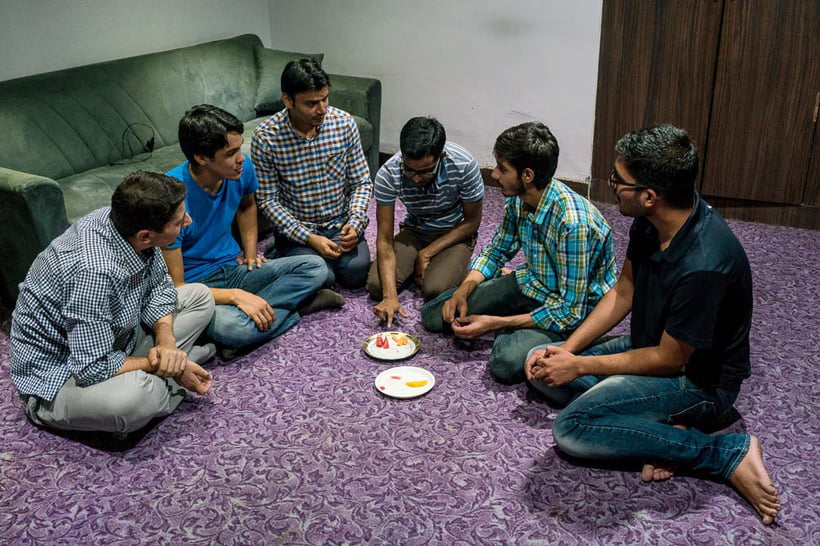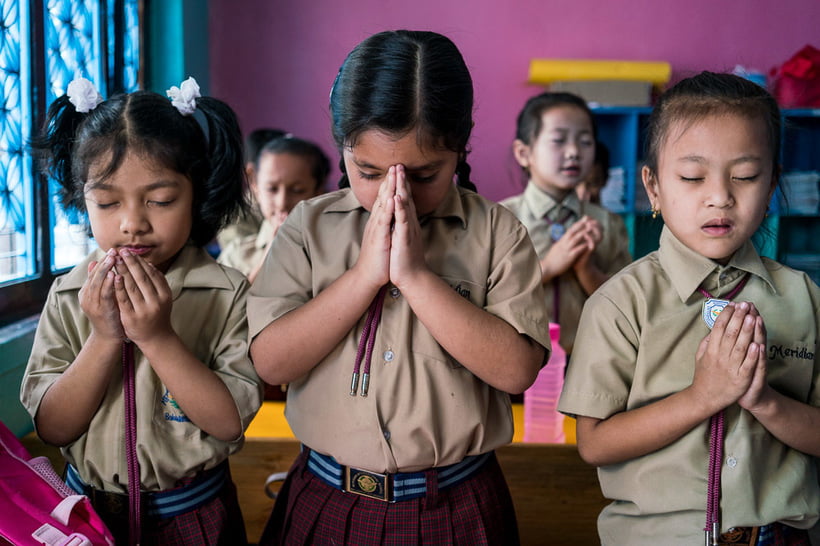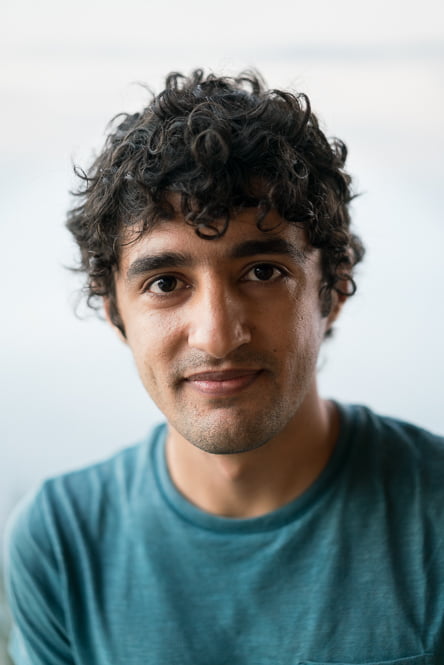Turkey’s coup attempt & a more intimate view of the Hizmet Movement

Date posted: August 3, 2016
ALEX MOREL
Many of us saw in disbelieve what happened in Turkey last Friday the 15th. For some maybe it wasn’t a surprise; Turkey’s infamous history of coup d’etats is still fresh in its citizens’ minds. But within hours, the quick turn of events was such that if you were not surprised before, now your eyebrows were raised and your forehead frowned. Anyone with a bit of knowledge of Turkey’s contemporary history would understand that something very odd was/is at play here.
My Work and the Reason I Am Writing This
A few years ago I heard for the first time about a Turkish civic movement that was engaged in a series of educational, interfaith dialogue, and disaster relief works worldwide, not just in Turkey. My own work as an educator, the intersections between the personal and the social aspects in my art work, and my experience documenting the work of NGOs and aid organizations led me to proposed an in depth investigation into the works of Hizmet, as this movement called. Since January of this year, I’ve been photographing visually documenting the work of Hizmet, but more importantly learning about the people involved and their motivations. Through organizations like the Peace Island Institute I’ve been able to gain ample access the movement and its work, and by now this project have taken me already to places like Haiti, India, and Nepal, as well as Turkey, and hopefully will bring me to other regions where Hizmet is present. Shockingly, President Recep Tayyip Erdogan has blamed this movement of being behind the coup attempt as well as labeling them as a terrorist organization.

Indian and Turkish students sharing plates of fruits. New Delhi – India, 2016
The Coup Attempt and What’s Happening in Turkey Now
We are all relieved and happy that the so-called will of the people and democracy succeeded in defense of a democratically elected government. But as I hinted before, the strange thing was that the coup did not succeed. It is hard for any Turk and any informed non-Turkish to comprehend how sloppy, unprepared, and unsupported (by the military itself) this attempt was. The Turkish military, the self proclaimed protector of the secularist republic, just doesn’t make a mistake like this. Add to this the efficiency and quickness of the police, the organized masses of civilians that came out to protect their country, and the almost immediate “discovery” and denunciation of those behind the coup attempt. Forgive me if I sound a bit skeptical, but this situation does indeed mix feelings of triumph of liberty and theater of fools. President Erdogan has accused Fethullah Gülen, a moderate Islamic cleric who has been in self-exile in the US since 1999, and Hizmet, the civic movement started and inspired by him and others over four decades ago, of masterminding the coup attempt and of being a terrorist organization. President Erdogan has publicly demanded the extradition of Fethullah Gülen without submitting proof, and members of his cabinet have accused the US of also supporting the coup. This event has produced an unforgivable number of deaths (290 and counting), but it seems that the worst is not yet over. With numbers constantly climbing, close to 3,000 members of the military are held in prison, and nearly 3,000 judges and prosecutors have been suspended and facing arrested for supposed connections to the often-called Gülen Movement. A staggering number, over 60,000, public servants and academics including over 1,500 university deans have been purged for alleged affiliations to the Gülen Movement. If this is not a witch-hunt or ideological cleansing, I don’t know what to call it. The government has declared a state of emergency, and President Erdogan has called for changes in the constitution and the increase of executive powers of the president. All this in defense of democracy.

Morning prayer at the Meridian International School, one of the most diverse, progressive, and high achieving schools in Kathmandu – Nepal, 2016.
ALEX MOREL
What I Have Seen and What I have Learnt About Hizmet
Without getting too much into the history of the movement (that you can easily find somewhere else), but based only on my experiences and research so far, I can say the following:
Hizmet, a Turkish word that means “service”, is a civic movement composed of people from all walks of life, mostly Turkish but by now as diverse as the many countries in which they are present. The movement was started and inspired by the teachings of a moderate Islamic cleric, Fethulah Gülen, over four decades ago in Turkey, and they seem motivated by a philosophy of active love, service, and tolerance as a means to contribute to a more peaceful global society. Working towards this vision of the world, they focus primarily in three areas: creating high achieving educational institutions from elementary schools to universities; establishing interfaith dialogue organizations where leaders from different religions as well as public official come together to find and share common grounds at a local and international level; and providing emergency relief in disaster areas around the world such as earthquakes and tsunamis, as well as maintaining orphanages and helping others less fortunate in our own communities.
Recently, a NYT article referred to Hizmet as a vastly rich, secretive religious movement led by the Muslim cleric Fethullah Gülen. I can’t help but to ask, what is so secretive and so religious about Hizmet?! Perhaps the problem starts with the word “movement” and labeling them as others different from us. Hizmet is also referred to as the Gülen Movement, but this could be misleading because while inspired by the preaching of Mr. Gülen, institutions and individuals seem to operate independently without any direct contact with him besides his books and writings, many of which appear in the NYT itself. Furthermore, there is not apparent headquarter or hierarchical organization unifying a network of affiliates. There are no memberships, dipping in water, anointment with oil, pledge of alliance, or anything of the sort. Schools operate publicly in Turkey and elsewhere. Dialogue institutions build strong relationships with public officials and community leader wherever they are. Families constantly open their homes hosting neighbors for dinner or tea in an effort to build community. Today Hizmet is present in close to two hundred (200) countries and there are probably over 2000 schools around the world (no one has an actual count) plus other cultural organizations. From what I understand, the Turkish government itself doesn’t have diplomatic representation in as many countries. So in a way, the positive international image that Turkey enjoys is in great deal owed to the service of Hizmet. Obviously President Erdogan, once a friend of Mr. Gülen, doesn’t seem to appreciate such service.
Is this really a religious movement? Well, religious faith is indeed a powerful motivator and source of constancy in the work of those affiliated to Hizmet. But here is what I’ve found interesting: what some have called a “mystical” interpretation of Islam is one based on principles of love, service and tolerance towards others, as I mentioned earlier, and much of this mysticism comes from the thoughts of Rumi, the 13th century poet so admired in eastern and western civilizations alike. This is not the interpretation of Islam that motivates ISIS and other radical groups. The values they seem to emphasize are universal and resonate with all major faiths and with socially concerned non-religious people. Last, I have not seen yet anyone in Hizmet trying to impose or convert anyone to Islam. Religion is not part of the curriculum in their schools in Turkey, and abroad they adhere strictly to the education guidelines of those countries. From what I have seen so far it would be difficult for me to describe Hizmet as a religious movement, and much less as a secretive organization. Their work is tangible and out in the open, and focused on social outreach and the building of more tolerant peaceful societies.
There are two aspects however, that seem to raise the most suspicions among many, and that personally have taken me the longest to understand. The first question to come up is, where is the funding for all these works coming from? The second question is, my own skepticism fighting back, why are they “really” doing all of this? These questions I think reflect more on my/our own cultural skepticism and the profit driven social construct in which I/we have been raised. The answers seem to be very simple and thus difficult to accept. First, those associated with Hizmet appear to develop a highly altruistic sense of service towards the community where the only expected profit is in itself a better world. Naturally, a more accepting and integrated society opens opportunities for everyone. Second, much is supported through donations and volunteer work, from humble individuals who contribute $5 to successful businessmen who contribute thousands on a regular basis. Of course, institutions like the schools are expected to become self-sufficient, eventually and hopefully contributing to expanding the movement. Sadly, it is difficult for most of us to grasp this level of selflessness, sense of social responsibility, and long-term vision when we are a product of a society that values above all individuality, money, and power, and definitely a quick turn around on our efforts. After coming face to face with something like Hizmet, it is easier to doubt than to accept the obvious.
Politically speaking, I have not come across any particular aspect of the movement showing this kind of ambition. It is not an organized political organization. In any free society, a concerned citizen must be by definition politically engaged at some level. But from there to conspiring against the secularity of the Turkish State is quite a stretch. President Erdogan however, a conservative Islamist himself, has made clear his political ambitions. He is exercising quite a particular interpretation of democracy, centralizing power under the presidency, systematically eliminating dissenting voices, and constantly widening the rift between different groups of Turkish society. To me, that, looks more like a threat to Turkish secularist democracy.

Mustafa, a young Turkish man left home to go to Haiti not even sure where that was on the map. There he works at a recently opened elementary school, and helps in several orphanages supported by donations and volunteers affiliated to Hizmet. He is also enrolled in a local university studying modern languages. Port Au Prince – Haiti, 2016.
ALEX MOREL
Fears and Responsibilities
So what happens when we place labels on a person or a group? How do we transform the way others might perceive them? How easily do we accept the fervent and emotional words of those who speak loud and ill of others? Do we have the critical capacity to discern the truth when we are presented with any situation, and more so when that situation means the life or death of another human being? Turkish citizens are being encouraged to denounce anyone that sympathizes with Hizmet, peoples’ homes are being marked with Xs, and families are being threatened if their sons and daughters don’t comeback from abroad to face “justice”. Many are now calling for the reinstitution of the death penalty in the country, plummeting the consciousness of a nation that has been proud of its progressiveness and historical openness. So, in our day and age, what happens when someone, carelessly and unfairly, labels a person or a group as terrorists?
Source: The Huffington Post , August 02, 2016
Tags: Defamation of Hizmet | Education | Hizmet and politics | Hizmet-inspired schools | Peacebuilding |
























